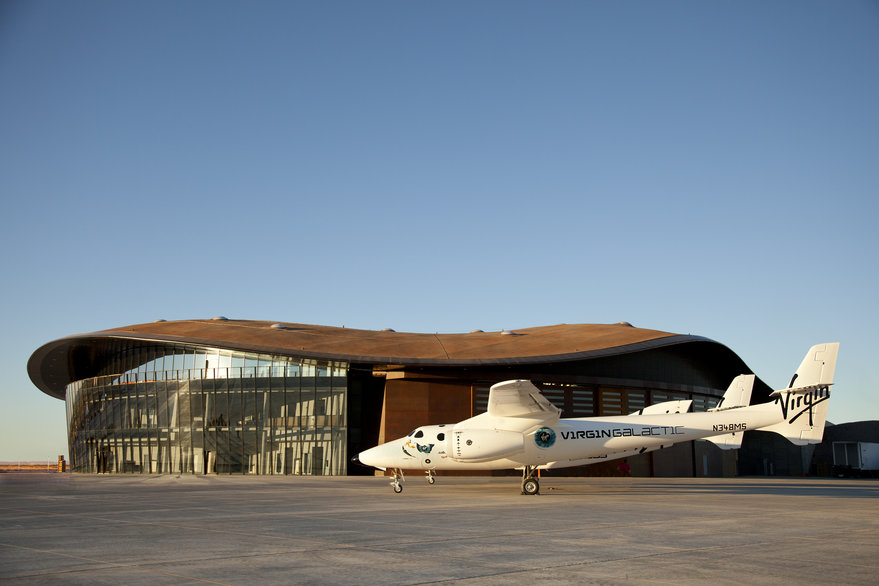Products You May Like
WASHINGTON — Virgin Galactic announced June 22 it has signed an agreement with NASA to support development of a program to train and potentially procure rides for private individuals seeking to fly to the International Space Station.
The company, best known for developing the SpaceShipTwo suborbital spaceplane, said it signed a Space Act Agreement with the Johnson Space Center to develop a “private orbital astronaut readiness program.” That initiative would support renewed efforts by NASA, announced a little more than a year ago, to increase commercial use of the station, including visits by private astronauts.
As envisioned by Virgin Galactic, that program will handle various aspects of flying private individuals to the station. That would include identifying potential customers, handling training and arranging for transportation to the station. The company didn’t disclose details about those plans, including a schedule for beginning such flights or their costs.
It’s unlikely that, in this scenario, Virgin Galactic would use its own vehicles for transporting people to and from the station. SpaceShipTwo is capable of only suborbital flight, and the company’s published long-term plans focus on high-speed point-to-point transportation rather than orbital human spaceflight.
The company would more likely work with Boeing and SpaceX, the companies developing commercial crew vehicles for accessing the ISS. Both companies have shown interest in working with third parties rather than sell seats to individuals directly. SpaceX has already sold commercial flights of its Crew Dragon spacecraft to Axiom Space for a mission to the station as well as to Space Adventures for a standalone mission to an orbit higher to than the station. Space Adventures previously announced plans to partner with Boeing to market commercial Starliner flights.
The arrangement, though, could make use of Virgin Galactic’s existing vehicles and infrastructure. The company said those capabilities “could play an important role in the training for orbital travel,” such as flying people to give them experience with microgravity and the G-forces of launch. The company would also use its facilities at Spaceport America in New Mexico for other aspects of training.
“We are excited to partner with NASA on this private orbital spaceflight program, which will not only allow us to use our spaceflight platform, but also offer our space training infrastructure to NASA and other agencies,” George Whitesides, chief executive of Virgin Galactic, said in a statement.
The agreement fits into a broader low Earth orbit commercialization effort the agency announced last June, seeking to stimulate commercial use of the ISS and eventual development of commercial stations. That initiative includes a new commercial use policy for the station and price list for commercial use of ISS resources, as well as allowing private astronaut missions to the station.
The strategy also included a competition to award access to a docking port on the station for a commercial module. In January, the agency selected Axiom Space to use that port for a module that the company plans to launch in the second half of 2024. That module will serve as a node for a series of future commercial modules that will eventually undock from the ISS and become a standalone space station.
That strategy, though, has faced challenges, including a lack of funding. NASA requested $150 million for its LEO commercialization effort last year but received just a tenth of that amount from Congress. NASA is again seeking $150 million for LEO commercialization in its fiscal year 2021 budget proposal.
NASA is also revamping its LEO commercialization strategy. Doug Loverro, at the time the associate administrator for human exploration and operations, said in April that he planned to establish a single organization within its mission directorate that handled all commercial activities, including its commercial cargo and crew programs, in order to better manage them. That reorganization, though, appears to be on hold after Loverro abruptly resigned from the agency last month amid rumors of violating procurement regulations for the agency’s lunar lander program.
This Space Act Agreement between NASA and Virgin Galactic is not the first agreement between the two organizations. Virgin Galactic has a contract from NASA’s Flight Opportunities program to carry research payloads on SpaceShipTwo flights. The company has several other Space Act Agreements to support research and development work, including one announced May 5 to assist its work on future high-speed transportation systems.
A future area of cooperation may involve flying NASA astronauts on SpaceShipTwo. NASA Administrator Jim Bridenstine announced March 2 that the agency would start an effort to certify commercial suborbital vehicles, like SpaceShipTwo, so that astronauts could fly on them for training or research. Bridenstine, in a June 19 tweet, said a request for information to support that effort would be released within a week.
“This is big news,” Whitesides said in a tweet responding to Bridenstine. “We look forward to working with the agency to advance this exciting capability to fly NASA astronauts.”
